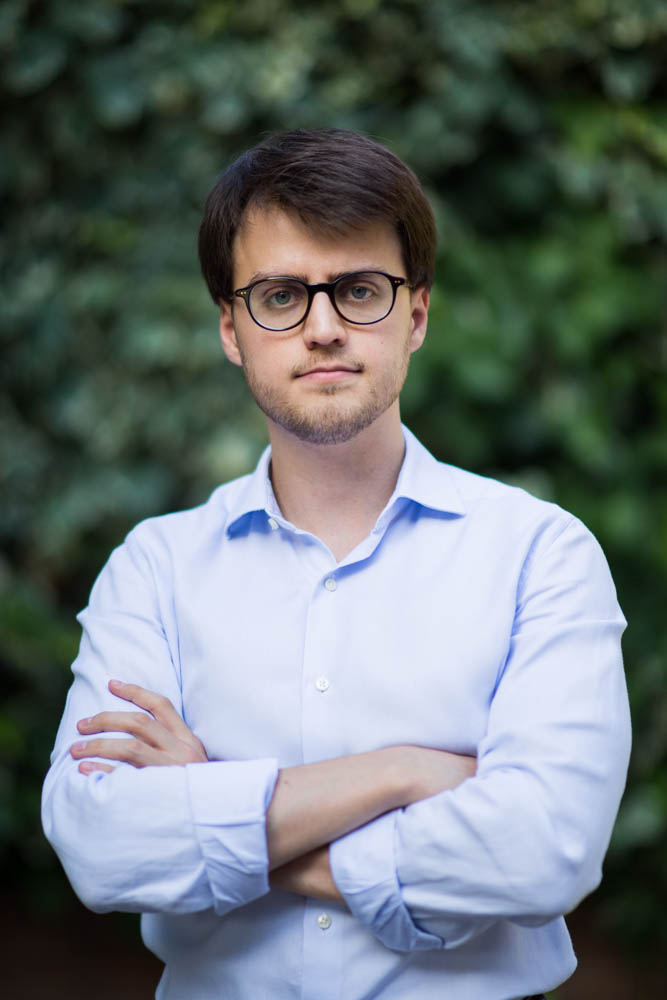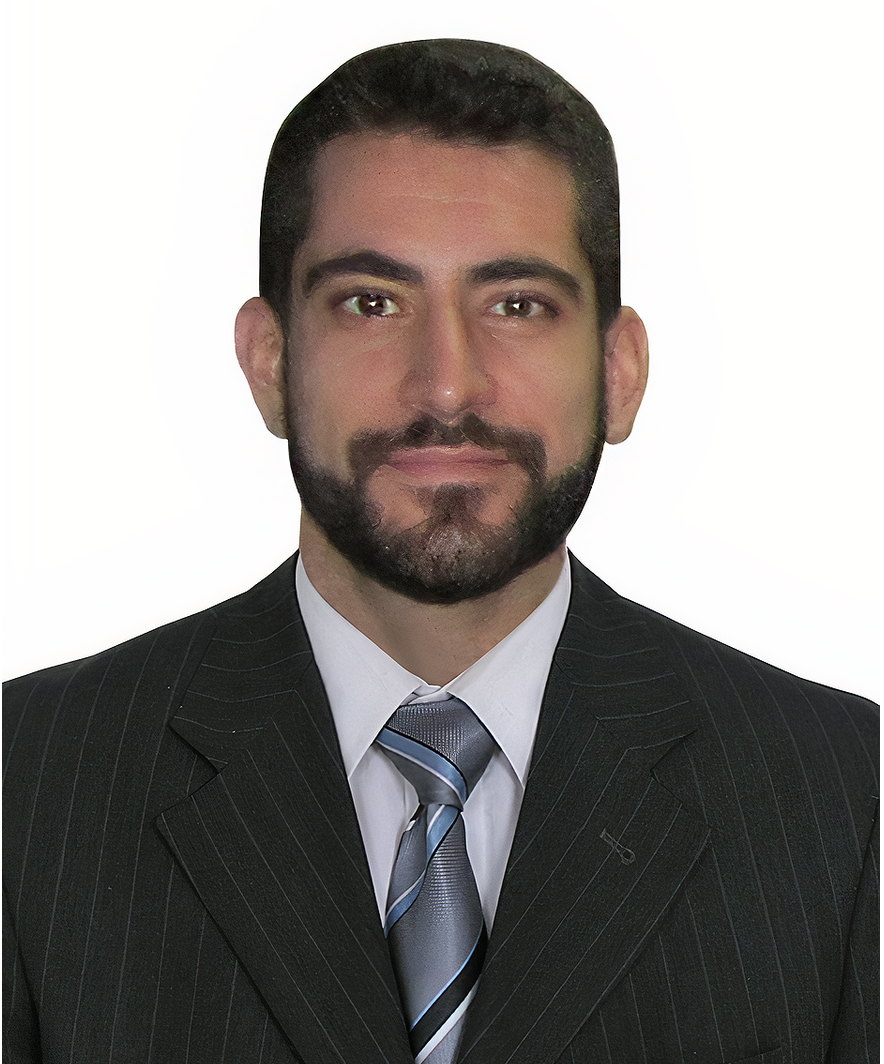Seminars of the Department of Law
Academic year 2023-2024
Organization:
Direction: Professor Eimys Ortiz
With de support of Professor Lourdes Salomon and fellows from the department of the speaker area.
Organization:
Direction: Professor Eimys Ortiz
With de support of Professor Lourdes Salomon and fellows from the department of the speaker area.
Day: October 16, 2023
Place: Meeting Room of FDET
Hour: 17h to 18h
Presentation: "La transmissió de la delació en el dret civil català. Implicacions civils, registrals i fiscals"
Enrique Peruga Pérez, is a full-time predoctoral researcher at the Department of Private Law at the University of Barcelona. He is currently working on his doctoral thesis under the direction of Dr. Esther Arroyo Amayuelas. Prior to beginning his Doctorate studies, he worked as a lawyer in the Civil and Commercial Procedural Law department of a large firm based in Catalonia. His research activity focuses on Catalan Civil Law and, more specifically, inheritance Law, particularly from a comparative perspective. He recently completed a predoctoral research stay at the Ludwig-Maximilians-Universität (Munich, Germany).
Abstract: The work analyzes the recent jurisprudence of the Catalan courts and the rest of Spain on the transmission of ius delationis,
that is to say, the right to accept or repudiate the acquisition of an inheritance. The study of jurisprudence and recent doctrine reveals
certain dysfunctions in the current state of Catalan regulation. Among others, an issue of the current regulations is that it gives preference to the transmission of the denunciation over the vulgar substitution. The negative effects of this and other dysfunctions not only affect Civil Law or Inheritance Law, but also Tax Law and Registry Law. Consequently, some solutions are proposed in the light of Catalan legal tradition and Austrian succession law. In particular, it is necessary to reflect on whether it would not be more appropriate that, in cases of post-death of the
person called, vulgar substitution generally prevailed over the right of transmission.

Day: November 20, 2023
Place: Meeting Room of FDET
Hour: 17h to 18h
Presentation: "Mechanisms to reduce the secondary victimization of persons under the age of victims of sexual violence: practical application of the pre-constituted test in the context of the Barnahus"
Roser Casanova Martí, tenure-eligible Lecturer of Procedural Law at Rovira i Virgili University. She holds a PhD in Law from the same university with an international mention (2014) and an extraordinary doctorate award (2015). She has participated in different national and international research projects. Her research activity focuses mainly on probatory matters, in the criminal and civil field, being the author of numerous publications, highlighting her monograph “The telephone interventions in the criminal process” (edit. JM Bosch, 2014). She has participated in several national and international conferences and scientific conferences as a speaker, communicating and member of the organization committees. She has also carried out different research stays in national and foreign centres: three at Oxford University, England (2012, 2015 and 2019), one at the Università degli studi di Bologna, Italy (2013) and one at Pompeu Fabra University (2022).
Abstract: It is unquestionable that sexual violence in its entirety is unacceptable, and even more so when it is directed against minors. Unfortunately, the statistics show that a very important part of this type of violence is against this vulnerable group, of which only a few cases become known. To ensure that these facts are explained and denounced, criminal justice must be able to respond to the needs of these victims. In this context, the Barnahus project has been implemented in the province of Tarragona, a pioneer in Catalonia and Spain, in charge of the management and care of children and adolescents victims of sexual abuse in a coordinated way among all the professionals involved in these cases. The main purpose of the research work presented is to examine the reform introduced by Organic Law 8/2021, of June 4, on the comprehensive protection of children and adolescence against violence, which modifies the Law of Criminal Procedure and introduces ex novo the obligation to preconvent the test of the declaration of minors in the criminal process and its practical application in the context of Barnahus.

Day: December 18, 2023
Place: Meeting Room of FDET
Hour: 17h to 18h
Presentation: "The agricultural insurance contract and other agricultural risk management instruments in Italy and Spain. Current problems and future challenges"
Teresa Franquet Sugrañes, Professor of Commercial Law at the Faculty of Law of the URV since 1996 and doctor in LAw (2003). She has published in books and scientific journals on issues related to image rights, Company Law, competition law and insurance law. Dra. Franquet has recently published in the RDM on induction to contractual infringement and has written book chapters on the subject of agricultural insurance and on the role of Insurance Compensation Consortium. Precisely, on the subject of agricultural insurance she has made a 3-month stay at the Unversità degli Studi di Firenze (Italy), under the supervision of Professor Sara Landini, to carry out a comparative study between the two States. In the teachings field, she has taught in various degrees, diplomas, specialization courses, doctoral courses and national master's degrees on issues related to commercial law.
Abstract: The agricultural sector is a strategic sector that is called upon to align itself with the Sustainable Development Goals (SDGs), therefore, the European CAP finances measures appropriate to these objectives. Among other policies, support is given to financial instruments that facilitate the management of economic losses and damage in the agricultural sector. The seminar will discuss the SDGs, the European CAP, the operation of the combined agricultural insurance contract in Spain and the Italian risk management model based on the implemantaion of different complementary measures and an evaluation of these measures will be carried out.

Day: January 22, 2024
Place: Meeting room of FDET
Hour: from 17h to 18h
Presentation: "Virtues and shortcomings of the Spanish legal-labor regulatory model of the group of companies"
Oriol Cremades Chueca, tenure-eligible Lecturer Serra Húnter of Labour and Social Security Law at the Rovira i Virgili University. He holds a PhD with international mention in Economic and Business Law from the University of Deusto, the Universidad Pontificia Comillas (ICADE) and the Universidad Ramon Llull (ESADE-URL). His doctoral thesis on the identification and legal foundations of labour liability in the group of companies in Spain won the "Spanish Association of Labour and Social Security Law" Award for the best doctoral thesis defended in 2020 and obtained the Extraordinary Doctorate Award from the URL. Prior to beginning his academic career, he worked for renowned law firms and completed a pre-doctoral research stay at the Portuguese Catholic University and a post-doctoral research stay at the University of Rome La Sapienza. His research interests include the impact of corporate fragmentation (group of companies and network of companies) on labour law, the concept of the employer and its powers, and "Digital Labour Law" (in particular, the use of personal mobile devices for work -Bring Your Own Device - BYOD-, the law of digital disconnection, telework, and artificial intelligence and Collective Labour Law).
Abstract: The group of companies, as a form of corporate structuring, is a historical success; however, its risks and the difficulties for the law to regulate it are undeniable. In this sense, despite the fact that all legal systems and areas of law find it complex to regulate, not all regulatory models for company groups are equally effective and efficient. Based on these ideas, the paper will address what is understood to be the current Spanish legal-labour regulatory model for company groups, emphasizing and contrasting its possible virtues and shortcomings. In particular, on the one hand, the advantages and risks of the group of companies will be analysed, and on the other, the legal-legislative treatment of the group of companies as well as the Spanish jurisprudential doctrine of the "labour group of companies" will be discussed.

Day: March 18, 2024
Place: Meeting room of FDET
Hour: 17h to 18h
Presentation: “Human dignity as a fundamental right: Is a comprehensive and practical comprehension of the concept feasible, or is it a relic that must be discarded and forgotten forever? A proposal that is founded on the concepts of self-esteem and shame”
Gonzalo Fernández Codina is a doctor in philosophy, an attorney, and an associate professor at the University of Barcelona. He has authored monographs in the fields of bioethics and criminal law. His thesis studies the legitimacy and legality of secession in democratic contexts.
Abstract: Both in philosophy and in law, it is very common to speak of human dignity as the foundation of all rights and/or of the legal order itself. This being the case, it would be expected to have a reasonably clear concept that would allow us to decide precisely what is acceptable and what is not. Yet, quite the opposite happens: dignity is commonly appealed to in favour of one position and its opposite, without really knowing what exactly is being said or why. In the seminar, we will review the main proposals in circulation about human dignity and its many difficulties. However, we will try to show the serious problems we incur if - as is also usual - we decide to get rid of them completely. To conclude, we complete this critical section by outlining a new proposal on dignity understood as the right not to be subjected to situations that rationally justify feeling debased - a notion that, naturally, will also have to be clarified.

Day: April 15, 2024
Place: Meeting room of the FDET
Hour: 17.00h-18.00h
Presentation: “Analysis of the change in the migration paradigm in Mexico: a challenge for its management by public administrations”
Pablo Latorre Rodríguez, PhD in Law from the University of Zaragoza, carries out his teaching and research duties at the Autonomous University of Baja California (Mexico). Among his publications, the following monograph stands out: The legal management of diversity from Public Administrations, Tirant lo Blanch, 2018.
Abstract: Mexico has always played a leading role in migration dynamics on a global scale, since it is the main issuing state for migrants to the United States. However, recently, a reconfiguration of this traditional scenario has taken place, since, in addition to the aforementioned historical role, the role of involuntary transit point for the growing flows of migrants from other origins (notably Central Americans) must also be added. Even as a result, current migratory trends, such as those known as the migrant caravan, represent an enormous challenge for Mexico, which must ensure respect for the human rights of migrants and manage the phenomenon of cultural diversity with the aim of avoiding potential social conflicts.
Dia: 6 de maig de 2024
Lloc: Sala de Juntes de la FDET
Hora: 17.00h - 18.00h
Ponència: "L'Estat actual de la institució de la residència fiscal"
Daniel Santiago Marcos, professor Lector de Dret Financer i Tributari de la Universitat de Girona. La seva tesi, defensada el 2023, va tractar sobre la Fiscalitat del Teletreball. Les seves principals línies d'investigació recauen sobre temes diversos: l'impacte de l'alta mobilitat en la institució de la residència fiscal i la distribució del poder impositiu; les Hisendes Locals; la intel·ligència artificial en l'Administració Tributària i els seus efectes sobre els drets dels contribuents; la fiscalitat de l'habitatge i la despoblació. Així mateix, ha realitzat una estada a l'Institut de Dret Tributari Austríac i Internacional de Viena amb la finalitat d'estudiar el Dret Comparat i Fiscal Internacional respecte l'alta mobilitat de treballadors i els seus efectes sobre la fiscalitat. Properament, es publicarà la seva primera monografia sobre la Tributació de les activitats laborals prestades a distància amb l'editorial Tirant lo Blanch.
Extracte: La ponència te la finalitat d'exposar el marc jurídic de la residència fiscal de les persones físiques. Es posarà èmfasi en la problemàtica actual per a determinar-la a causa de l'alta mobilitat, als conceptes ambigus que composen l'esmentada institució i a les possibilitats que existeixen en el nostre sistema jurídic per canalitzar els diferents reptes que emergeixen de la globalització.
Dia: 3 de juny de 2024
Lloc: Sala de Juntes de la FDET
Hora: 17.00h - 18.00h
Ponència: “Els serveis urbans de l'aigua i el debat sobre una autoritat reguladora"
Iván Rodríguez Florido és actualment investigador postdoctoral a la Universitat Pompeu Fabra en l'Àrea de Dret Administratiu. Doctor en Dret per la Universitat de Barcelona (2022) amb un projecte d'investigació sobre els serveis urbans de l'aigua a España i la seva organització administrativa, tesi publicada per Aranzadi (2023). Màster en Dret d'Aigües per la Universitat de Granada (2018). Advocat de Dret Públic durant vuit anys. Secretari de l'Observatori del Cicle de l'Aigua de la Càtedra UB de dret de la regulació dels serveis públics. Guardonat amb el IX “Premi Joves Investigadors Joan Prats 2019”, categoria Administració Pública, atorgat pel Congrés Internacional en Govern, Administració i Polítiques Públiques (GIGAPP).
Extracte: El debat sobre la gestió i l'organització dels serveis urbans de l'aigua ha crescut considerablement en els darrers anys. Especialment després del reconeixement per part de l'Organització de les Nacions Unides del dret humà a l'aigua el 2010, es discuteix quin ha de ser el nivell de l'Administració pública que reguli i gestioni la prestació d'aquests serveis tan essencials per a la vida de les persones. El sistema actual del sector urbà de l'aigua presenta alguns dels reptes i disfuncions com l'envelliment de les xarxes, l'escàs nivell de recuperació de costos, l'heterogeneïtat de preus o l'elevat dèficit de transparència al sector. Tot això s´agreuja en un context d´emergència climàtica i episodis de sequera. Una mirada al dret comparat ens permet apreciar un nou paradigma on s'introdueix un regulador d'àmbit estatal sobre serveis que romanen sota la titularitat de les entitats locals. L'existència d'aquestes entitats convida a una reflexió final pel que fa a l'encaix jurídic que podria tenir la creació en el nostre ordenament d'una figura regulatòria independent sobre els serveis locals de l'aigua.